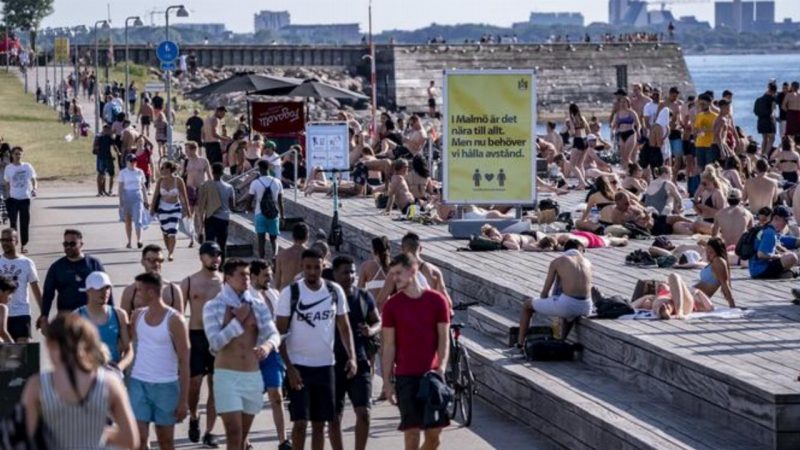- Sweden has walked back its controversial stance of no-lockdowns, as COVID-19 cases again surge in the country
- The Swedish Government was one of few developed nations to avoid lockdowns in the hopes of creating a herd immunity from the novel virus
- The results were mixed, with Sweden’s mortality rate much higher than its neighbours – but its COVID-19 case numbers did drop over June and July
- The Scandinavian nation is now experiencing a second-wave of coronavirus infections, with case number tripling in the last month
- As a result, the Swedish Government has announced restrictions on gatherings at local places like libraries and sporting centres
- But, unlike Australia, the restrictions won’t be enforced with fines and the elderly population won’t be asked to isolate
Sweden has walked back its controversial stance of not introducing lockdowns to control the coronavirus pandemic, as cases once again surge.
The Scandinavian nation is experiencing a second-wave of COVID-19 infections, like many other parts of Europe.
In Sweden, the number of COVID-19 cases has almost tripled in the last month as people return to work and school following the end of summer.
According to the World Health Organisation, Sweden has recorded over 107,000 cases of the virus and more than 5,900 deaths.
Herd Immunity
The high numbers are partially due to the Swedish Government’s decision to avoid following the global trend of implementing lockdowns when the pandemic first began.
Instead, the nation’s leaders decided to pursue the idea of creating a herd immunity, by allowing life to continue on as normal for young, healthy residents.
The idea was considered controversial amongst health professionals and scientists, and the results from the no-lockdown approach have been mixed.
Sweden’s COVID-19 numbers have dropped since the initial outbreak in March to May, but the country’s cumulative death toll is 10 times higher than neighbouring Finland and Norway.
The Response
Since the second wave of high case numbers in the last month though, Sweden has decided to alter its no-lockdown approach to the virus.
The Government has given local jurisdictions power to close and restrict numbers at gathering places such as shopping centres, museums, libraries, swimming pools, gyms, sports centres and concerts.
However, unlike in Australia, the new restrictions won’t be enforced through fines meaning residents can choose to ignore them.
Additionally, the elderly population who’d previously been subject to lockdown restrictions as they were more likely to die from COVID-19, have also been allowed more freedom.
“The Public Health Agency has decided that the elderly and those in special risks groups will be subject to the same recommendations as the rest of the population,” Swedish Health Minister Lena Hallengren announced this week.
Those over 70 will no longer have to isolate in order to protect themselves from the coronavirus, instead, they can follow the same rules as the rest of Sweden’s population.
Considering the Centre for Disease Control reports that the mortality rate for COVID-19 increases alongside a persons age, Sweden’s death toll is unfortunately expected to climb higher still under these new changes.

